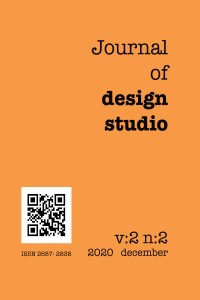Abstract
References
- Arnheim, R. (1969). Visual Thinking. Berkeley CA: University of California Press.
- Giedeon, S. (1962). The Eternal Present: 1. The Beginnings of Art, 2. The Beginnings of Architec-ture. New York: Bollingen Foundation.
- Hoare. Carol (Ed). (2006) Handbook of Adult Development and Learning. Oxford, UK and New York: Oxford University Press.
- Land, Ray, and Cousin, Glynis, Meyer, Jan H.F. Davies, Peter. (2006) “Implications of Threshold Concepts for Course Design and Evaluation.” in Overcoming Barriers to Student Understanding: Threshold Concepts and Troublesome Knowledge. By Meyer, Jan H.F. and Land, Ray (Eds), Lon-don and New York: Routledge, 2006.
- Lawson, Bryan. (2019) The Design Student’s Journey: Understanding How Designer’s Think. New York and London: Routledge.
- McCarter, Robert, (2008) quoted in McKay-Lyons, “Ghost: Building an Architectural Vision” Princeton Architectural Press, 193.
- Meyer, Jan H.F, and Land, Ray, and Baillie, Caroline (Eds) (2010) Threshold Concepts and Trans-formational Learning. Rotterdam, Netherlands: Sense Publishers.
- Mezirow, Jack. (2000) Learning as Transformation: Critical Perspectives on a Theory in Progress. San Francisco, CA: Josey-Bass: A Wiley Company.
- Osmond, Jane and Turner, A. The Threshold Concept Journey in Design: from Identification to Application. in Jan H.F. Meyer and Ray Land and Caroline Baillie (Eds). Threshold Concepts and Transformational Learning (pp: 347-364). Rotterdam: Sense Publishers.
- Perry, W.G. Jr. (1998) Forms of Intellectual and Ethical Development in the College Years: A Scheme. New York: Jossey-Bass.
- Ponson, Marc and Taylor, Mathew E Taylor and Tuyls, Karl. (2010) “Abstraction and Generaliza-tion in Reinforcement Learning: A Summary and Framework,” in Adaptive Agents and Multi-Agent Systems IV, LNAI, Springer-Verlag, 1-33.
- Seabury, Marcia Bundy. (1991) Critical Thinking via the Abstraction Ladder. The English Journal Vol 80 No. 2. National Council of the Teachers of English, 44-99.
- Sweeting, B. (2011). Conversing with Drawings and Buildings: from Abstract to Actual. Kyber-netes Vol 40 No 7/8, 1159-1165.
- Temple, Stephen. (2009) Initializing the Discipline of Design in the First Project(s). Proceedings of the National Conference on the Beginning Design Student, Louisiana State University, Baton Rouge LA: College of Art and Design, 207-214.
- Tovey, Michael, and Osmond, Jane. (2014) Design Pedagogy and the Threshold of Uncertainty. International Conference of Engineering and Product Design Education. The Netherlands: Uni-versity of Twente.
- Tovey, Michael (Ed.) (2016) Design Pedagogy: Developments in Art and Design Education. Lon-don and New York: Routledge.
- Vesey, Vesey, Godfrey N.A. 1965. “Seeing and Seeing As.” In Perceiving, Sensing, and Knowing edited by R. J. Swartz, 68–84. Berkeley CA: University of California Press.
Abstract
By immediately being asked to work abstractly, beginning design students are investigating architecture through a pedagogy taken-for-granted by its instructors. To abstract something is to draw it out of the concrete, and unless a student is looking for this displacement, they will become disconcerted, struggle, and become lost to the design process. Abstract operations of design, when presented out of step with student self-development, can mislead and distort experience. This essay defines a student’s encounter with abstraction as a threshold concept within the transformative journey of design student self-development. Writings about abstraction in artistic production by Sigfried Gidieon and Rudolph Arnheim define abstraction and provide a basis for critique of abstraction as a threshold concept in beginning design pedagogy. Challenges caused by abstraction for both pedagogy and beginning design students are investigated. Arnhem’s definition of abstraction as relations between part and whole implies a pedagogical approach for learning design that positions encounters with abstraction as a transformative threshold, suggesting that a gradual introduction of abstraction can build connections through embodied experience rather than disassociations. A series of architectural design exercises will be demonstrated that are structured, as result of this study, to gradually introduce abstract operations in design through a progressively transforming sequence over the first six weeks of beginning design studio. Delivered as analogous to architecture, each successive exercise initiates an abstract design operation as an individual design choice, enabling students to learn to see part in terms of whole, toward a working, conceptual understanding of abstraction in design.
Keywords
beginning design pedagogy abstraction in design design learning theory threshold concepts of learning transformative learning architectural design
Supporting Institution
University of Texas at San Antonio
References
- Arnheim, R. (1969). Visual Thinking. Berkeley CA: University of California Press.
- Giedeon, S. (1962). The Eternal Present: 1. The Beginnings of Art, 2. The Beginnings of Architec-ture. New York: Bollingen Foundation.
- Hoare. Carol (Ed). (2006) Handbook of Adult Development and Learning. Oxford, UK and New York: Oxford University Press.
- Land, Ray, and Cousin, Glynis, Meyer, Jan H.F. Davies, Peter. (2006) “Implications of Threshold Concepts for Course Design and Evaluation.” in Overcoming Barriers to Student Understanding: Threshold Concepts and Troublesome Knowledge. By Meyer, Jan H.F. and Land, Ray (Eds), Lon-don and New York: Routledge, 2006.
- Lawson, Bryan. (2019) The Design Student’s Journey: Understanding How Designer’s Think. New York and London: Routledge.
- McCarter, Robert, (2008) quoted in McKay-Lyons, “Ghost: Building an Architectural Vision” Princeton Architectural Press, 193.
- Meyer, Jan H.F, and Land, Ray, and Baillie, Caroline (Eds) (2010) Threshold Concepts and Trans-formational Learning. Rotterdam, Netherlands: Sense Publishers.
- Mezirow, Jack. (2000) Learning as Transformation: Critical Perspectives on a Theory in Progress. San Francisco, CA: Josey-Bass: A Wiley Company.
- Osmond, Jane and Turner, A. The Threshold Concept Journey in Design: from Identification to Application. in Jan H.F. Meyer and Ray Land and Caroline Baillie (Eds). Threshold Concepts and Transformational Learning (pp: 347-364). Rotterdam: Sense Publishers.
- Perry, W.G. Jr. (1998) Forms of Intellectual and Ethical Development in the College Years: A Scheme. New York: Jossey-Bass.
- Ponson, Marc and Taylor, Mathew E Taylor and Tuyls, Karl. (2010) “Abstraction and Generaliza-tion in Reinforcement Learning: A Summary and Framework,” in Adaptive Agents and Multi-Agent Systems IV, LNAI, Springer-Verlag, 1-33.
- Seabury, Marcia Bundy. (1991) Critical Thinking via the Abstraction Ladder. The English Journal Vol 80 No. 2. National Council of the Teachers of English, 44-99.
- Sweeting, B. (2011). Conversing with Drawings and Buildings: from Abstract to Actual. Kyber-netes Vol 40 No 7/8, 1159-1165.
- Temple, Stephen. (2009) Initializing the Discipline of Design in the First Project(s). Proceedings of the National Conference on the Beginning Design Student, Louisiana State University, Baton Rouge LA: College of Art and Design, 207-214.
- Tovey, Michael, and Osmond, Jane. (2014) Design Pedagogy and the Threshold of Uncertainty. International Conference of Engineering and Product Design Education. The Netherlands: Uni-versity of Twente.
- Tovey, Michael (Ed.) (2016) Design Pedagogy: Developments in Art and Design Education. Lon-don and New York: Routledge.
- Vesey, Vesey, Godfrey N.A. 1965. “Seeing and Seeing As.” In Perceiving, Sensing, and Knowing edited by R. J. Swartz, 68–84. Berkeley CA: University of California Press.
Details
| Primary Language | English |
|---|---|
| Subjects | Architecture |
| Journal Section | Research Articles |
| Authors | |
| Publication Date | December 20, 2020 |
| Published in Issue | Year 2020 Volume: 2 Issue: 2 |
This work is licensed under a Creative Commons Attribution 4.0 International License.
The articles published in Journal of Design Studio had been similarity checked by intihal.net

CALL FOR ARTICLES
Journal of Design Studio call for research papers on studios in all disciplines. Please submit your article by using Dergipark online submission system.



